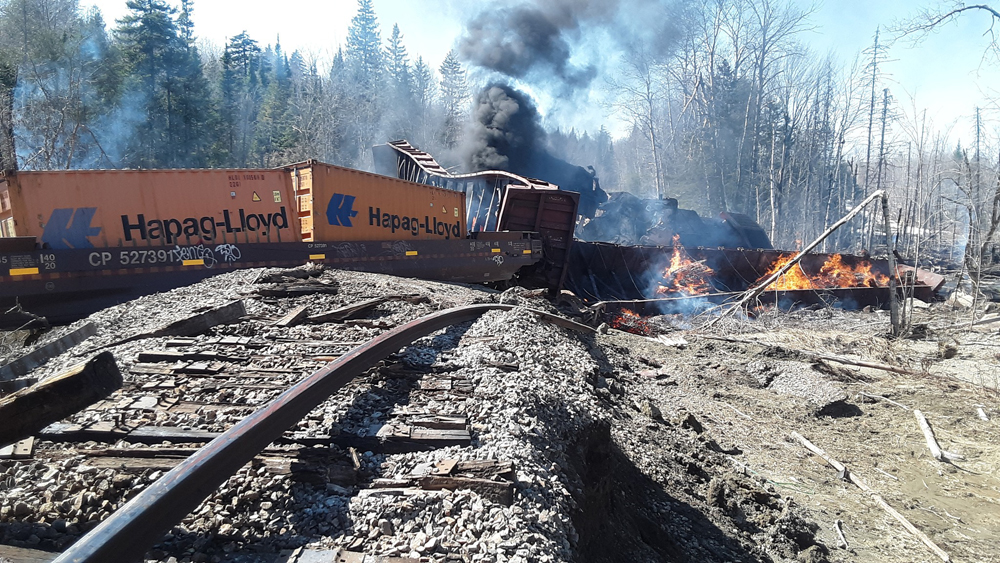
SANDWICH ACADEMY GRANT TOWNSHIP, Maine — The Maine Department of Environmental Protection has notified CPKC of its dissatisfaction with clean-up efforts following last week’s derailment and fire involving a CPKC train in northern Maine, and warned it could step in to take over that cleanup at the railroad’s expense.
CPKC says it is fully cooperating with state officials.
“CPKC is and will remain committed to the full restoration of the derailment site and full clean-up of the affected environment. Our comprehensive response to this incident will not end until that restoration and clean-up has been completed,” railway spokeswoman Doniele Carlson says. “CPKC crews are on the ground working in full cooperation with the Maine Department of Environmental Protection, and other agencies, as we have since the derailment occurred.”
Three crew members were injured when three locomotives and nine cars of a CPKC train derailed and caught in Sandwich Academy Grant Township, near Rockwood, Maine, on April 15 because of a washout [see “Fire chief calls it a ‘miracle’ crew in Maine derailment wasn’t more seriously injured,” Trains News Wire, April 17, 2023].
Thursday’s letter to a railroad official in New York came from Melanie Loyzim, commissioner of the Department of Environmental Protection. It said the agency would prefer “to continue to work with CPKC in addressing the cleanup in a prompt, efficient, and coordinated manner” and expects the railroad to act “to avoid any need for enforcement action.”
The letter says the railroad “failed to meet Department expectations regarding timing and response of clean-up activities in order to effectively mitigate impacts to the environment and public health.” Some directives issued by the department have not been addressed, the letter says, including a failure to empty fuel tanks of derailed locomotives before they were moved to avoid further spillage, and a timely removal of tank cars containing hazardous material. Those tank cars were part of the train’s consist but did not derail or discharge any of their contents.
WABI-TV reports that the DEP estimates 500 gallons of diesel fuel spilled because the railroad did not follow directives, and that the two cars of hazardous material were not removed from the site until Thursday.
But CPKC says Maine DEP personnel are present on the site daily and observed the assessment made by CPKC mechanical teams that the fuel tank was empty before the locomotive was moved. When the locomotive was righted, residue fuel leaked into the protected containment area previously set up around the locomotive.
“The remote, forested nature of the area combined with the spring thaw has made clean-up efforts challenging, including for the ingress and egress of people and equipment,” Carlson says. “Throughout this response, the safety of personnel at the site and restoration of the environment remains our priority.”
Teams are using Boom, absorbents and vac trucks to contain and clean up the released diesel and working to protect the surrounding environment. Contaminated soil and waste is being isolated for proper removal to authorized disposal facilities.
Three locomotives and one lumber car remain at the site awaiting removal, which will clear the way for further environmental clean-up and restoration.
Intermodal shipping containers carrying hazardous materials were involved in the derailment. No hazardous materials spilled as a result of the incident. All have been removed from the derailment site.
Shipping containers carrying drums of ethanol on one intermodal car were removed last weekend. The shipping containers with the drums of pentamethylheptane in a second car had previously been moved and staged safely away from the immediate derailment area and were taken away from the recovery site on Thursday.
Note: Updated at 6:15 a.m. on April 23 with comment from CPKC






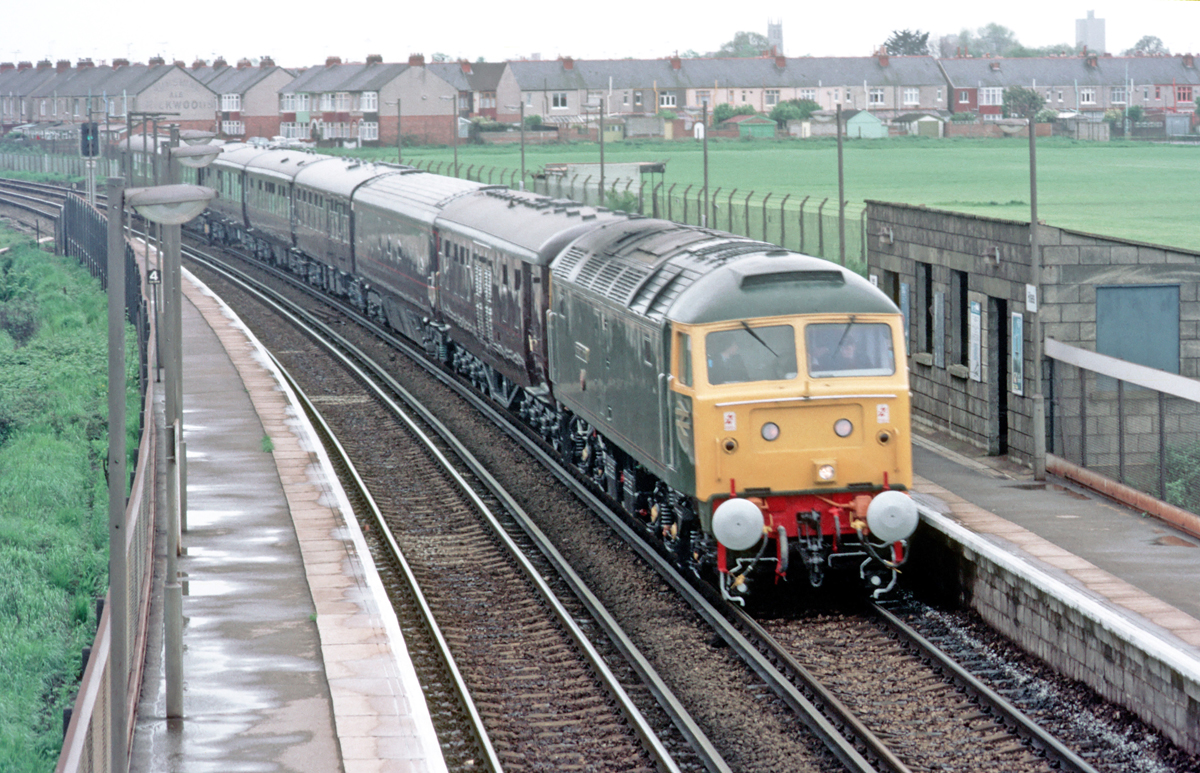
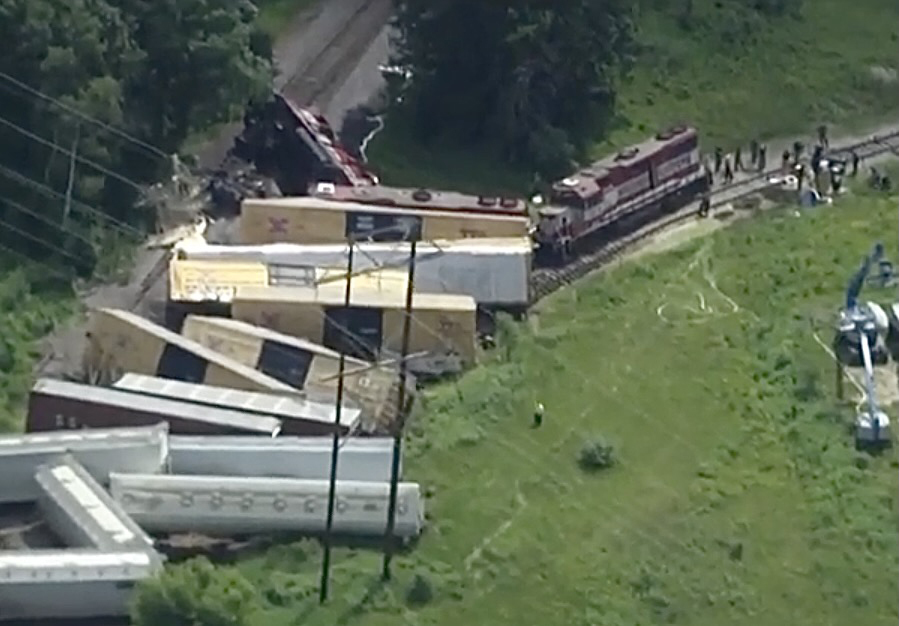
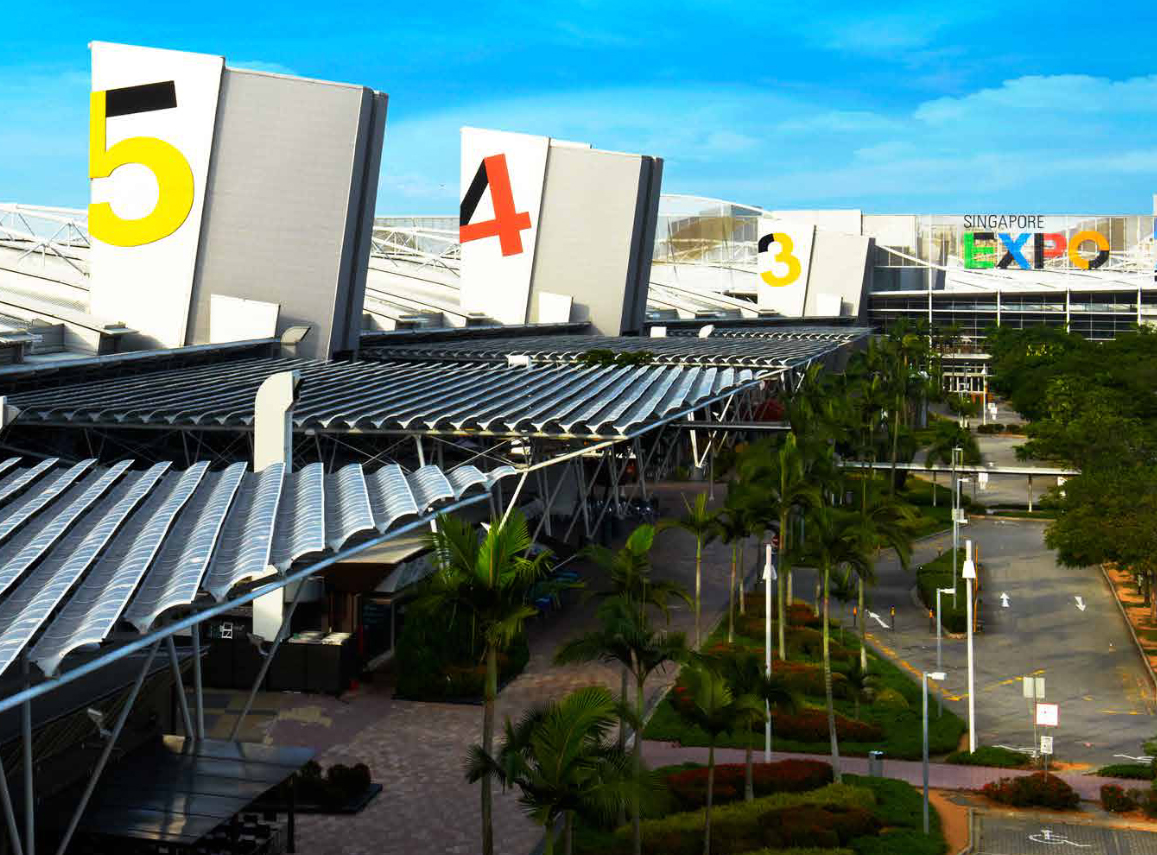
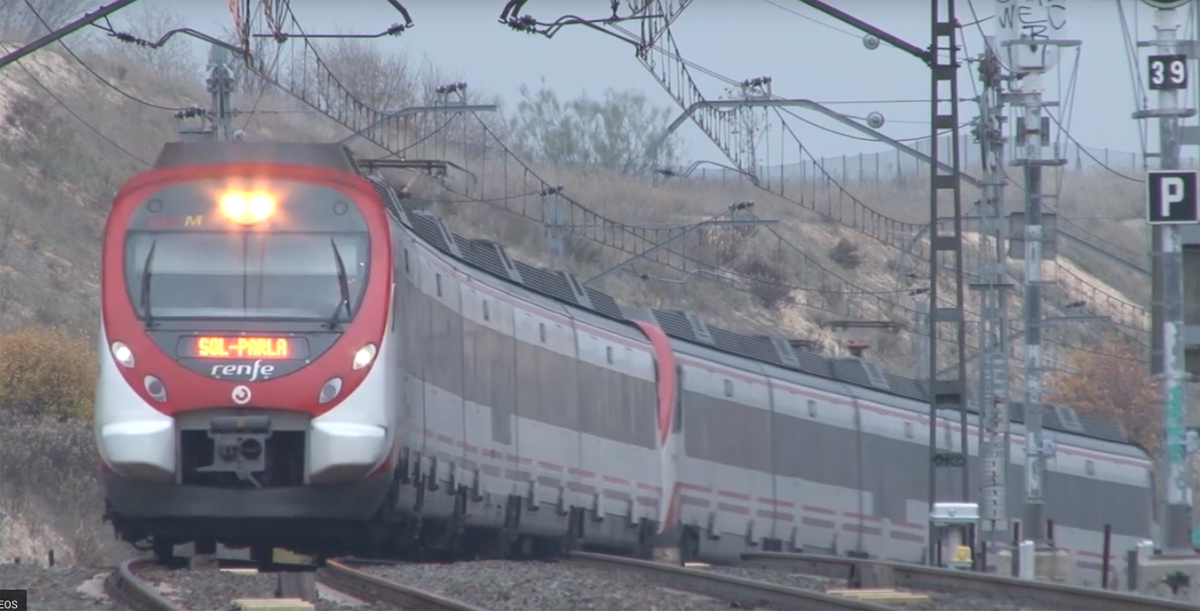




Bob Crowe: Yes, the eleven most dangerous words strung together into a sentence.
If the tank cars carrying hazardous materials were not part of the derailment but just happen to be sitting where they stopped, what’s the issue ?
That one was a stretch? Ignorance leads to irrelevant requests!
The problem here is the RR’s need to catch up with how ground contamination is handled. Gone are the days of shove everything aside and get the line reopened, same mistake happened with NS in East Palestine and they had to tear up the tracks and dig out all the soil. A spill of 500 gallons of diesel fuel is not acceptable especially when it can enter a waterway let alone seep into the ground and eventually contaminate groundwater.
Okay, explain how they clean up diesel fuel in the middle of a fire. They placed booms around the spill which was probably the best they could do at the time.
Sometimes solving the emergency (Putting the fire out) supersedes the letter of the law or regulations. (pumping out diesel fuel when it is too near a fire…)
That’s actually really simple, nobody except for fire crews will be near the derailed locos/cars until the fire is out and it is safe to work.
With all the heavy equipment required to be brought onsite, after the fire is out there would have been no problem transferring the fuel to a tank truck, sucker truck or portable contamination tank with a transfer pump prior to moving the derailed locomotives. Nothing in the article said anything about removing fuel in the middle of a fire.
The statement from the state authorities sounds like their request to remove the fuel was ignored.
Anything can be done, it just takes planning, time and money.
Jim, the story says that CPKC stated that what spilled out was residue after the locomotives were emptied. Although I don’t consider 500 gallons residue. So who knows if they were or not.
You have to love when incompetent government agencies overreach and meddle into things they know nothing about.
AMEN Brother…
Yeah, I’m from the government and I am here to help.